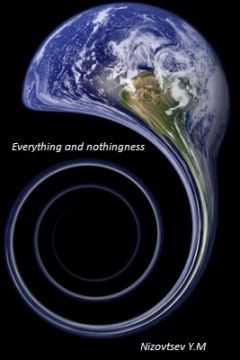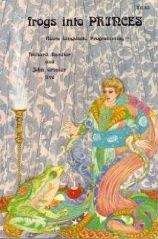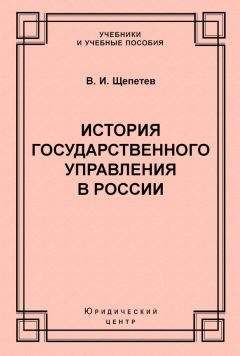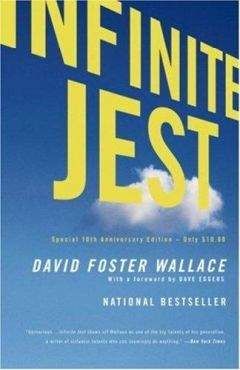Ознакомительная версия.
Thus, it is possible to note that according to the offered model of the dual Creation the true is the existence of actual, active infinity (consciousness) and boundless, potentially full by all things, but passive infinity which are merged in timeless and motionless Uniform, and existence them in infinite change discretely in a holographic projection of Uniform, which is "converted" in each individual consciousness into beingness with the moving and changing things.
And can't be differently, inasmuch Uniform and its projection sustain each other in the form of the equilibrium dual system, and they aren't capable to existence in separateness. Their division would mean disappearance of Uniform, so how separately it is net zero or it is nothingness.
Single consciousness finds itself in plurality of particles-copies in the world into time, and thereby the motionless uniform consciousness in Uniform through its projection becomes capable in the form of copies to alter itself through change of own particles-copies providing it by information about own finite lives in the living beings infinitely at a support on things in the form of copies manifested by them from Uniform, which there is everything and nothingness in own infinity, as if enlivening in this process Uniform, full by everything.
Infinite and timeless Uniform, thus, is the merged together the active and the passive; but in own projection it is presented by a multiple steady active, seeking to development, and – the passive, receiving different forms. The passive makes base for this development in infinitely updated by the active a holographic projection.
This duality is the only condition of manifestation Uniform, or – as a result – such duality is the only condition for life and development of consciousness.
It is curious that, represented as "thing in itself" the timeless, infinite Uniform, is being "unpacked" by sense organs of the person every instant – just look around, – thereby Uniform gives the opportunity to human consciousness to recognize his existence without belief in something fantastic, all-powerful and external.
Each person understands own spiritual essence, i.e. – understands that he is not a thing, that he can do a lot of things on own understanding, but when everything goes well in his life, the person, as a rule, doesn't think about virtual subjects.
However at these or those failures, as well as at the end of life, he willy-nilly looks for support, understanding own powerlessness, and often – and a vanity of hopes, one prays, another person meditates – and he can be addressed to God, an idol, etc.; but any person is addressed in fact, without noticing that, to own essence – to own consciousness: and this address is equivalent to the appeal to single consciousness.
In reply he receives that looks for: either hope, or confidence, or if everything is very bad, – consolation.
The person as image of Uniform, creates own "now", naturally, with assistance of Uniform which can't but respond on him.
Literature
1. Lenin V. I. Materialism and Empirio-Criticism. Collected Works. Progress Publishers, 1972. Moscow. V.14. [Electronic resource]. Access mode: Marxists.org>archive/Lenin… 1908/mec…
2. Nietzsche F. On Truth and Lies in extra moral sense. [Electronic resource]. Access mode: Nietzsche.ru/works/other/about-istina/
3. Avenarius R. Philosophie als Denken der Welt gemass dem Princip des kleisten Kraftmasses. Leipzig. Reisland. 1876.
4. Heidegger M. Being and Time. UK. This translation copyright © Blackwell Publisher Ltd. 1962. 0-631-19770-2 (pbk)
5. Husserl E. Logical investigations. V. 1. Prolegomena to pure logic. This paperback edition first published 2001 by Routledge. ISBN: 978-0-415-24189-8
6. Peirce. C. S. The Fixation of Belief. The Writings. Volumes I – VI. Vol. III. Indiana University. [Electronic resource]. Access mode: www.iupui.edu/-arisbe/menu/…/bycsp.HTM
7. Peirce C. S. What pragmatism is. The Essential Peirce 1 – 2. Vol. II. [Electronic resource]. Access mode: www.iupui.edu/-arisbe/menu/…/bycsp.HTM
8. Hobbes T. Leviathan. The English Works of Thomas Hobbes of Malmesbury; New First Collected end Edited by Sir William Molesworth, Bart., (London; Bohn, 1839-45). 11 vols. Vol. 3. 12.09.2015. [Electronic resource]. Access mode: <http: / /oll.libertyfund.org/titles/
9. Berkeley G. A Treatise Concerning the Principles of Human Knowledge. Edited by D.R. Wilkins. Dublin. Reissue 1734. [Electronic resource]. Access mode: www.math.tcd.ie/…/Berkeley/HumanKnowled
10. Husserl E. Ideas Pertaining to a Pure Phenomenology and to a Phenomenological Philosophy – First Book General Introduction to a Pure Phenomenology. Collected Works. Vol. II, 1976 [1913]. Kersten F., trans. The Hague. Nijhoff. [Electronic resource]. Access mode: www.dhspriory.org/kenni/…/Husserl/Ideas1.pd…
11. Hume D. Philosophical Essays Concerning Human Understanding. London. The copytext is the 1777 edition. [Electronic resource]. Access mode: www.david hume.org/
12. Avenarius R. Der menschliche Weltbegriff. Leipzig. Reisland. 1891.
13. Hegel G. Works of Hegel, Volumes: 13. Vol. I. [Electronic resource]. Access mode: http/www.logos.com/
14. Reale G., Antiseri D. Western philosophy from the origin to the present days. Vol. 1. Saint-Petersburg. “D. Petropolis”. 1994.
15. Mach E. Die Mechanik in ihrer Entwicklung historisch-kritisch dargestellt. 3. Auflage, Leipz., 1897, s. 473.
16. Nizovtsev Y. M. Our true life is endless. ISBN. 9781310367274. Smashwords Edition, 2014 © by Yury Nizovtsev.
17. Hegel G. Works of Hegel, Volumes: 13. Vol. VI. [Electronic resource]. Access mode: http/www.logos.com/
18. Fichte J.G. Foundations of the Entire Science of Knowledge. Cambridge. Cambridge University press. 1982.
19. Descartes R. Principles of Philosophy. Copyright © 2010-2015. Jonathan Bennet. [Electronic resource]. Access mode: www. Ahshistory.com/wp-content/…/descprin.pd…
20. Husserl E. Logical investigations. V. 2. Prolegomena to pure logic. This paperback edition first published 2001 by Routledge. ISBN: 978-0-415-24190-1
21. Nizovtsev Y. M. What is time, as on the basis of what it is formed. [Electronic resource]. Access mode: www.proza.ru
22. Locke D. The Works of John Locke in nine volumes. Vol. 1. An Assay concerning Human Understanding. Part 1. (1689). London. Rivington, 1824 12th ed. 15.09. 2015. [Electronic resource]. Access mode: http://oll.libertyfund.org/titles/761
23. Nizovtsev Y. M. In what, how and for what liberty is acting. ISBN: 9781311774460. Smashwords Edition, 2014 © by Yury Nizovtsev.
24. Nizovtsev Y. M. Communes as a result of crash of all civilization. ISBN. 9781311711199. Smashwords Edition 2014. © Nizovtsev Yury.
25. Kant I. The Critique of Pure Reason. University of Adelaide. 1781/1998. The web edition published by ebooks Adelaide. [Electronic resource]. Access mode: ebooks.adelaide.edu.au > Library . ebooks
26. Cantor G. Gesammelte Anhandlungen mathematischen und ohilosophischen Inhalts. Ed E.Zermelo, Berlin: J. Springer, 1932, reprinted Hildesheim: Olms, 1966; Berlin: Springer, 1980, 1990.
27. Fichte J.G. The vocation of Man. Trans. Peter Preuss. Indianapolis (Translation of Die Bestimmung des Menschen (1800). [Electronic resource]. Access mode: http;//archive.org/details/vocationofman00foch
28. Peirce C. S. The Approach to Metaphysics. Philosophical writings of Peirce. N. Y. Dover Publications, Inc. 1955.
Ознакомительная версия.





